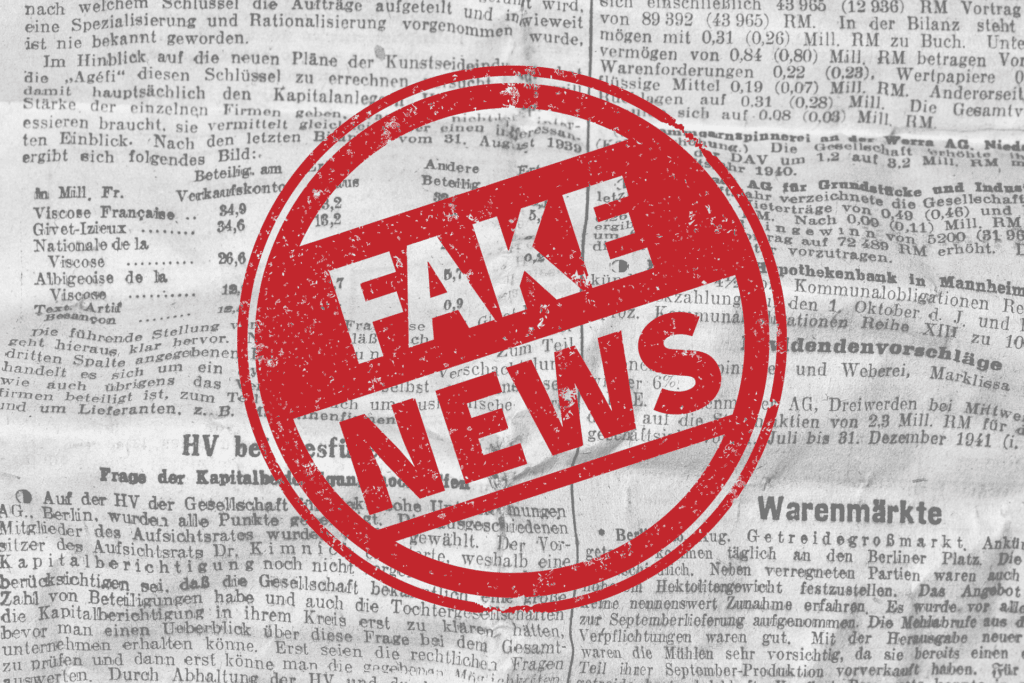World
You are Myth Taken: Fake News is All Around Us – Seed World

“FAKE NEWS!” and “That’s misinformation!” are often-used terms. But what do they mean exactly, where do they come from, and — most importantly — how can we stop them?
I used to think that fake news, news that is deliberately false, misleading, or biased, was something recent and inextricably linked to the internet. I couldn’t have been more wrong. False rumors and inaccurate reporting have been with us for as long as there have been people to create and spread them. Long before the arrival of social media, in fact right since the invention of the printing press, fake news has been a part of media history. But it was the development and widespread use of the internet that greatly increased the ability for literally anyone to write and quickly spread misleading content all over the world at the push of a button.

Latin America suffers especially harshly with fake news. Latin America has one of the highest rates of social media use, giving online trolls easy access to huge audiences.
Fake news is so common in Latin American politics that political campaign strategies now prioritize emotions over facts in what many political pundits call a “post-truth” reality. Political parties of all types routinely and deliberately aim to misinform and deceive on all kinds of topics, from health to security to migration.
By now we have seen numerous examples of propaganda, political polarisation, and loss of public trust in democratic institutions, due to fake news. We have seen dangerous precedents where false news led to national uprisings, trying to topple democratically elected people. Similarly, in the field of public health, including COVID, misinformation and disinformation have caused the unnecessary deaths of thousands if not more. Untruths – particularly propaganda and disinformation – played an important role in the lead up to Russia’s invasion of Ukraine, and they continue to circulate strongly in both countries. If we wish to reduce that, it is crucial that we put a halt to the creation and spreading of such untruths.
Reducing fake news will only work if we all work together — you, me, companies and policy makers. We all have a role to play, firstly to identify and remove fake news from the internet, and secondly, to make sure we think twice before putting something on the internet in the first place.
To be clear, we’re not good at identifying fake news. We rely on our prehistoric brain and over thousands of years, have learned to favour negative news over positive news. There is often a high emotional content in fake news, which seeks to provoke shock or anger. As a result, people active on social media often share fake news unintentionally because they believe, making inaccurate and misleading information widespread.
So, an important way to stop fake news online is to promote digital media literacy among adults and children, including in schools. As a first line of defence, schools play a crucial role. Teachers will need to reflect hard on what exactly it is they teach, and make sure the information they share with children is based on peer reviewed science, not on a teacher’s gut feeling or coming from their information bubbles. I have had my fair share of run-ins with teachers who erroneously believe GMOs are bad, organic is pesticide free, and all seed companies are evil. Most frustratingly, many continue to believe this even after hearing the scientific facts behind it all.
What can you do? Well, be on the lookout. One way of ‘arming’ yourself, your children and others is by playing a few educational games. I have played them myself and they are great fun, real eye-openers, and very informative at the same time. I guarantee, you won’t be looking at news in the same way after that. Here are some websites to try: https://www.getbadnews.com/en/ and https://www.goviralgame.com/en .
When reading ‘news’ and browsing the internet, always be aware. Make sure you are well equipped to distinguish fake from real. You may want to check if your organization, and perhaps even the school of your kids, has some sort of program in place to increase online awareness, and help your colleagues and children to better assess and verify the accuracy of online information. The gravity of fake news is often myth-understood.










